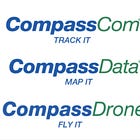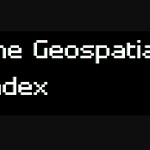CLIPS
Refocusing Business Strategy for Growth
How GPR Signals Work and Why They Can Produce False Positives
Starting in Forensics and a Heartbreaking Case
How Forensic Investigators Search for Victims
BIGMAN GEOPHYSICAL
As usual there is a connection through a number of episodes going on here. Back when interviewed Stephanie May, she introduced me to global base maps made by various tech companies.
I jumped at the opportunity to continue the theme when I came across Jordan Regenie's write up of his involvement in Bing Maps.
He mentioned a company participating in that effort was Compass Data so I dutifully pursued them for an episode and got Hayden Howard.
After that he gave me a free ticket to GeoWeek and I jumped on a flight from Atlanta to a SHOCKINGLY cold Denver for a stunned, disoriented walk around the exhibit hall for a few hours talking to as many companies as I could.
I came across several ground penetrating radar solutions. This included one on a towball which could detect buried services at highway speeds.
Impressive stuff. I also saw the other end of the spectrum, pushcarts which are used to produce the fluoro graffiti footpath markings you see about buried gas, power, fibre optic lines.
I was curious about starting my own business, so I kept investigating. I went to a Georgia Geospatial Association networking event in Atlanta soon after and got talking with the CEO Michael Bellrose of Tri-Global Technologies, a positioning company. He put me in touch with Dan Bigman, CEO of Bigman Geophysical.
And that's how some of these episodes happen! Literally a journey across American geospatial to hunt down these conversations for you. It was a good one. Dan told us a CSI type story to start with, about how archaeology and ground penetrating radar can be used for crime scene investigation. It was gruesome, but a good illustration of how our broader discipline benefits society - something which has been a common theme the past string of episodes about SAR for bushfire and warzone damage assessment.
Here we continue the radar theme but using different, more proximate technology, requiring someone to push a device over the ground rather than wait for a satellite. Do I want to start such a business myself? Well it is tempting. A second hand pushcart is only about $15,000. With another $5k around that with a website, marketing and a cheap truck one could get to hustling the pavement. Thanks Dan for being my second Atlanta guest as I begin to orient myself regarding opportunities in America.














